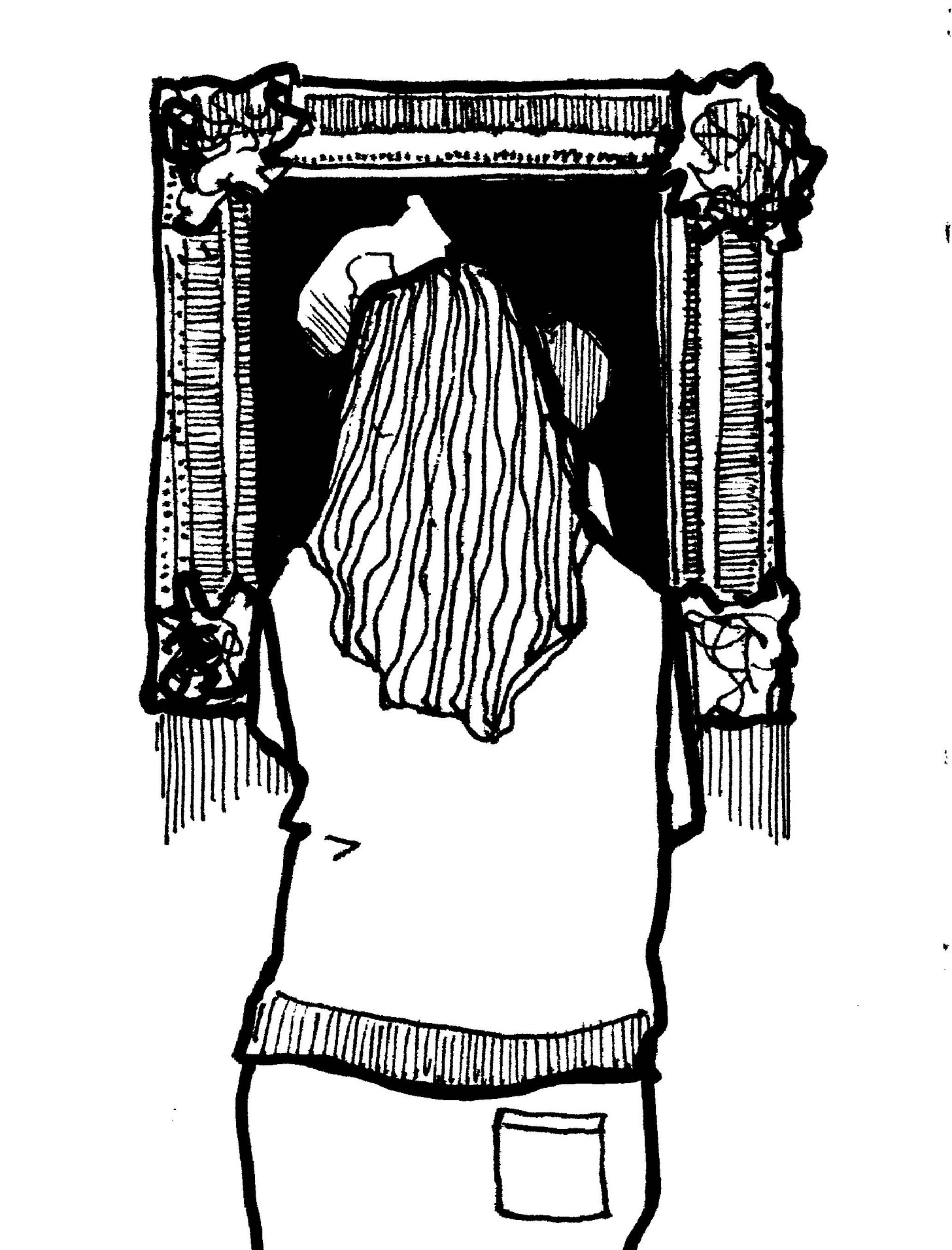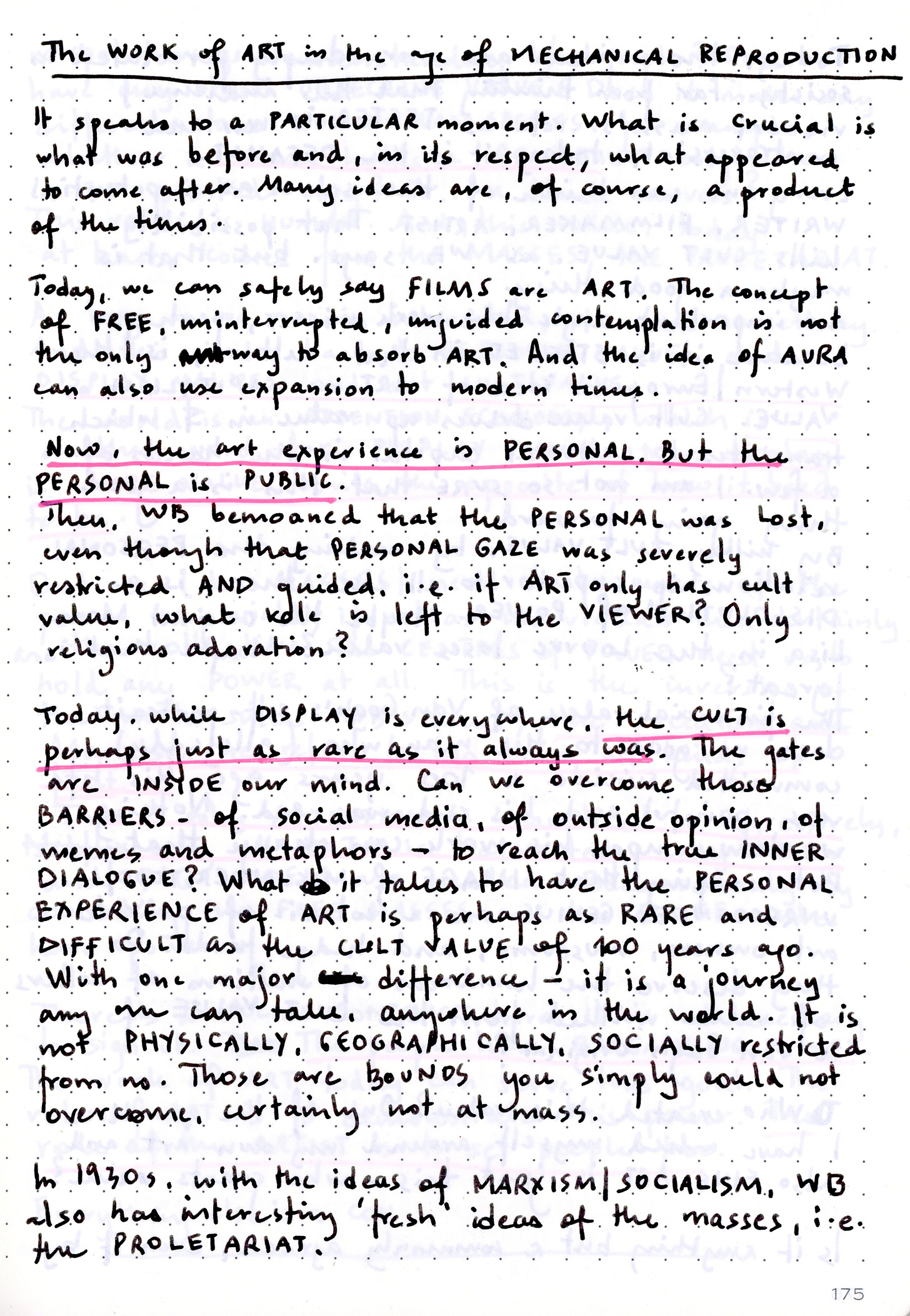Freewriting
Insider #90 with an 'attempt' to go deeper inside my mind.
Note: This is one part of a series of posts on the essay by Walter Benjamin. Read here: The Role of Art in the Age of 'Virtual Reproduction' | The Concept of Aura | What is Art keeps changing | Free Contemplation of Art | Freewriting | Everyone should own art
Dear Insider,
I find it difficult to hit send on this post. But I will do it. Part of me wants to change the subject, to sanitize the contents. It is the part of me that is afraid. Experience tells me I should ignore this feeling. That I must not fear. In vulnerability lies strength.
[deep breath]
I am sharing a stream-of-consciousness piece written in my work-journal after completing Walter Benjamin’s 1936 essay, The Work of Art in the Age of Mechanical Reproduction. I want to edit it, sanitize it, and take out the parts that don’t make much sense. But I will not fear.
The word ‘essay’ comes from the French essayer, meaning to try. I suppose this piece is an essay. It is not a conclusion. (I am saving that for later.) It is an attempt to go deeper into my own comprehension, to reflect upon what I have read, and to let the words flow unimpeded. Maybe it makes sense? I tried.
The SneakyArt (Insider) Post is written for patrons and paying subscribers of SneakyArt. Every Sunday I share my best ideas and latest updates from this journey of self-education to be an artist and writer.
The context for today’s post is set by my previous writings on the subject of aura in the physical confrontation of art. Read any of these posts to catch up: The Role of Art in the Age of Virtual Reproduction | The Concept of Aura | What is Art keeps Changing | Free Contemplation of Art.
My lingering thought at the end of Walter Benjamin’s essay was that 1936 is further away from me than I ever realized. His views offer an unparalleled insight into that time of great change in art and media technology. But at the same time, they are far removed from the developments of later decades. There is a wide gulf between our two worlds.
Related reading:
📖 Identity by Francis Fukuyama - the progress and evolution of modern individualist thought, self-expression, and human rights, from the French Revolution onwards.
📖 The Story of Philosophy by Will Durant - specifically the chapter on Voltaire, the greatest thinker of France.
📖 The Power of Ideas by Isaiah Berlin - the concept of positive and negative liberty, and the philosopher as a ‘historian of ideas’.




